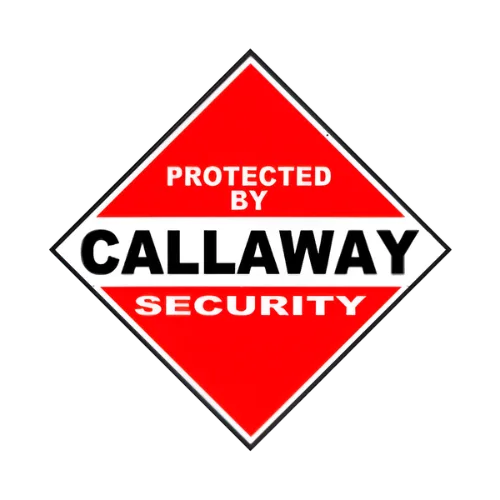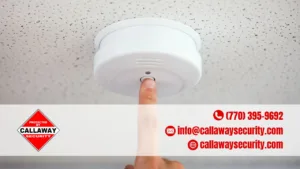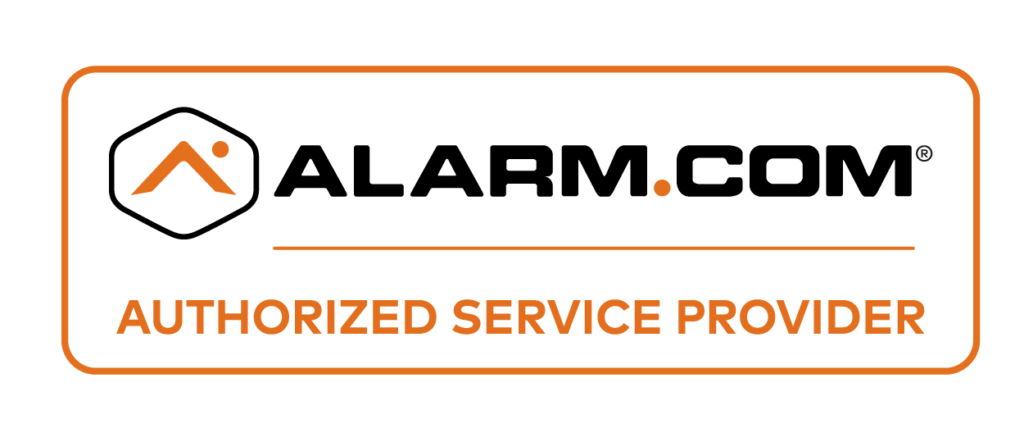Fire safety is a crucial aspect of protecting both families and businesses. Fires can cause devastating damage to properties, result in injuries or even fatalities, and lead to significant financial losses. Therefore, it is essential for individuals and organizations to prioritize fire safety measures to prevent fires from occurring and to be prepared in case of an emergency.
Key Takeaways
- Fire safety is crucial for both families and businesses to prevent loss of life and property damage.
- Understanding fire hazards and risks is essential to identify potential fire hazards and take necessary precautions.
- Essential fire safety equipment such as smoke detectors, fire extinguishers, and sprinkler systems should be installed in homes and offices.
- Creating a fire escape plan and educating children on fire safety practices can save lives in case of a fire emergency.
- Preventing electrical fires, proper storage and handling of flammable materials, and maintaining smoke detectors and fire alarms are important fire safety practices.
Understanding Fire Hazards and Risks
Fires can occur due to various reasons, both in homes and offices. Common causes of fires in homes include cooking accidents, electrical malfunctions, heating equipment, smoking materials, and candles. In offices, fires can be caused by electrical faults, improper use of equipment, flammable materials, and arson.
Identifying potential fire hazards and risks is crucial in preventing fires. In homes, it is important to ensure that electrical systems are properly maintained, flammable materials are stored safely, and smoking is done outside the house. In offices, regular inspections should be conducted to identify any faulty electrical equipment or potential fire hazards. It is also important to have clear guidelines for the storage and handling of flammable materials.
Essential Fire Safety Equipment for Homes and Offices
Having the right fire safety equipment is crucial for both homes and offices. Smoke detectors and fire alarms are essential in alerting occupants of a fire so that they can evacuate the premises quickly. It is important to install smoke detectors in every room of the house or office and regularly test them to ensure they are functioning properly.
Fire extinguishers are another essential piece of fire safety equipment. They can be used to extinguish small fires before they spread. It is important to have the right type of fire extinguisher for different types of fires, such as Class A (ordinary combustibles), Class B (flammable liquids), or Class C (electrical fires). Regular maintenance and inspection of fire extinguishers are necessary to ensure they are in good working condition.
Sprinkler systems are highly effective in controlling and extinguishing fires in large buildings or offices. They are designed to release water when a fire is detected, helping to suppress the flames and prevent the fire from spreading. Regular maintenance and testing of sprinkler systems are essential to ensure they are functioning properly.
Creating a Fire Escape Plan for Your Family or Business
Having a well-thought-out fire escape plan is crucial for both families and businesses. In the event of a fire, every second counts, and having a plan in place can help occupants evacuate safely and quickly.
When creating a fire escape plan, it is important to identify all possible exits from each room in the house or office. This includes doors, windows, and alternative routes if necessary. It is also important to designate a meeting point outside the building where everyone can gather after evacuating.
Once the fire escape plan is created, it is important to practice it regularly. This helps to familiarize everyone with the plan and ensures that they know what to do in case of an emergency. It is also important to review and update the plan as needed, especially if there are any changes in the layout of the building or if new hazards are identified.
Educating Children on Fire Safety Practices
Teaching children about fire safety is crucial to ensure their safety in case of a fire. It is important to educate them about the dangers of fire and how to prevent fires from occurring. This includes teaching them not to play with matches or lighters, not to touch electrical outlets or cords, and not to leave candles unattended.
Involving children in fire drills and escape plans is also important. This helps them understand what to do in case of a fire and ensures that they can evacuate safely. It is important to explain the importance of staying calm and following instructions during a fire emergency.
Preventing Electrical Fires in Homes and Offices
Electrical fires are a common cause of fires in both homes and offices. They can be caused by faulty wiring, overloaded circuits, or improper use of electrical equipment. To prevent electrical fires, it is important to ensure that electrical systems are properly installed and maintained.
Regular inspections of electrical systems should be conducted to identify any potential hazards. It is important to check for frayed wires, loose connections, or signs of overheating. It is also important to avoid overloading circuits by plugging too many devices into a single outlet.
Proper Storage and Handling of Flammable Materials
Proper storage and handling of flammable materials are crucial in preventing fires. Flammable materials should be stored in designated areas away from heat sources and ignition sources. It is important to follow the guidelines provided by manufacturers for storing and handling flammable materials.
Flammable materials should be stored in well-ventilated areas and away from any open flames or sparks. It is also important to ensure that containers are properly sealed to prevent leaks or spills. Regular inspections should be conducted to check for any signs of damage or deterioration.
Maintaining Smoke Detectors and Fire Alarms
Regular maintenance and testing of smoke detectors and fire alarms are essential to ensure they are functioning properly. Smoke detectors should be tested at least once a month by pressing the test button. If the alarm does not sound, the batteries should be replaced immediately.
It is also important to clean smoke detectors regularly to remove any dust or debris that may interfere with their operation. This can be done by gently vacuuming the detector or using a soft brush to remove any dirt.
Fire alarms should also be inspected regularly to ensure they are in good working condition. This includes checking the batteries, testing the alarm sound, and ensuring that the alarm is connected to a monitoring system if applicable.
Conducting Fire Drills and Training for Employees
Fire drills and training sessions are crucial for businesses to ensure that employees are prepared in case of a fire emergency. Fire drills should be conducted regularly to familiarize employees with the fire escape plan and to ensure that they know what to do in case of a fire.
During fire drills, employees should practice evacuating the building using the designated escape routes. It is important to emphasize the importance of staying calm and following instructions during a fire emergency. After the drill, it is important to debrief and discuss any areas for improvement.
Training sessions should also be conducted to educate employees about fire safety practices and procedures. This includes teaching them how to use fire extinguishers, how to evacuate safely, and how to respond in case of a fire emergency. It is important to provide employees with the necessary knowledge and skills to respond effectively in case of a fire.
Working with Firefighters and Emergency Services for Fire Safety
Working with firefighters and emergency services is crucial for both families and businesses to ensure fire safety. It is important to establish relationships with local fire departments and to involve them in fire safety initiatives.
Firefighters can provide valuable advice and guidance on fire safety measures, such as conducting inspections, identifying potential hazards, and recommending appropriate fire safety equipment. They can also provide training sessions or workshops on fire safety practices.
It is important to keep firefighters informed about any changes in the building layout or any new hazards that may arise. This helps them stay updated on the specific risks and challenges of the building and enables them to respond effectively in case of a fire emergency.
In conclusion, fire safety is of utmost importance for both families and businesses. Understanding fire hazards and risks, having essential fire safety equipment, creating a fire escape plan, educating children on fire safety practices, preventing electrical fires, properly storing and handling flammable materials, maintaining smoke detectors and fire alarms, conducting fire drills and training for employees, and working with firefighters and emergency services are all crucial aspects of ensuring fire safety.
It is important for individuals and organizations to prioritize fire safety measures and to regularly review and update their fire safety practices. By taking proactive steps to prevent fires and by being prepared in case of an emergency, families and businesses can minimize the risk of fire-related incidents and protect their loved ones and assets.
FAQs
What are some common causes of fires in homes and businesses?
Common causes of fires in homes and businesses include cooking accidents, electrical malfunctions, smoking, heating equipment, and arson.
What are some fire safety tips for families?
Fire safety tips for families include installing smoke detectors, creating a fire escape plan, practicing fire drills, keeping flammable materials away from heat sources, and teaching children about fire safety.
What are some fire safety tips for businesses?
Fire safety tips for businesses include conducting regular fire drills, installing fire alarms and sprinkler systems, keeping fire exits clear, storing flammable materials properly, and training employees on fire safety procedures.
What should I do if there is a fire in my home or business?
If there is a fire in your home or business, evacuate the building immediately and call 911. Do not try to put out the fire yourself unless you have been trained to do so and have the proper equipment.
How can I prevent fires in my home or business?
To prevent fires in your home or business, make sure to properly maintain electrical equipment, avoid smoking indoors, keep flammable materials away from heat sources, and have a fire safety plan in place. It is also important to regularly check smoke detectors and fire extinguishers.









